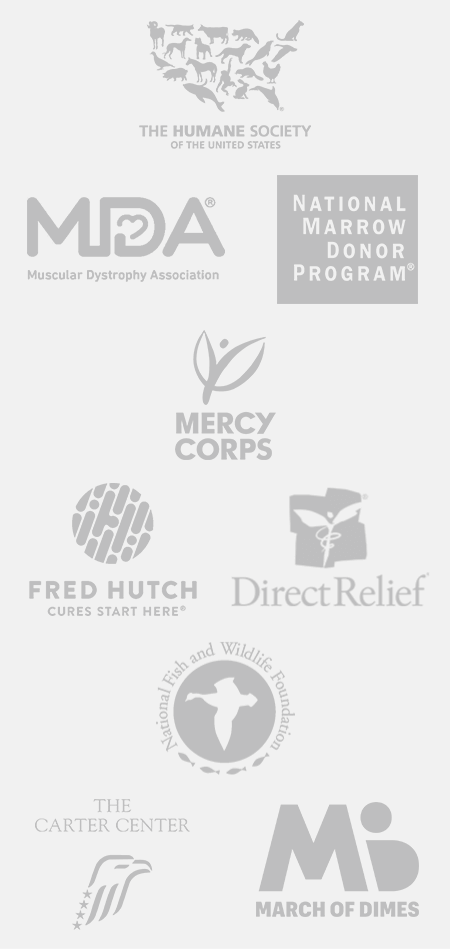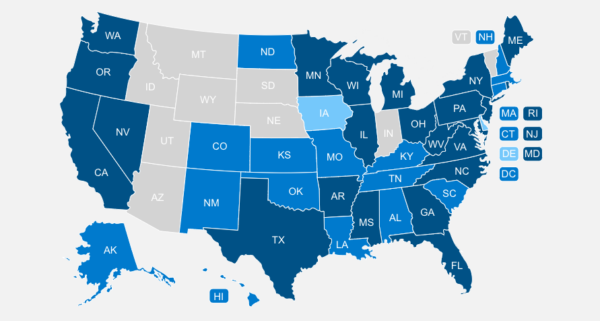How to Choose an Alabama Registered Agent for Your Nonprofit: A Step-by-Step Guide
December 23, 2021
California Attorney General Increases Charity Registration Fees and Updates Registration Forms for 2022
December 30, 2021501c4 Tax-Exempt Form

In a bid to improve services for tax-exempt entities, the IRS has revised the 501c4 tax-exemption Form 1024, Application for Recognition of Exemption Under Section 501(a), and its instructions to allow for electronic filing for the first time. This change is expected to go into effect in early 2022, thereafter, all applications for tax-exemption on Form 1024, and its instructions must be submitted electronically via www.pay.gov. The IRS will provide a 90-day grace period in which it will continue to accept the paper version of Form 1024-A. Starting April 2022, Form 1024-A must be submitted electronically.
Latest Tax-Exemption Form 1024 Revisions
The revisions of tax-exemption Form 1024 include: The publication of new Technical Guides. These guides are an update to Audit Technique Guides. Information for LLCs applying for 501(c)(3) tax-exempt status must now submit the information described in Notice 2021-56. A revised Form 4506-A - A request for public inspection or copy of exempt or political organization IRS Form. A new Form 4506-B. New training on Unrelated Business Income reporting courses.
Application for Recognition of Exemption Under Section 501(c)(4) - IRS Form 1024-A
Form 1024-A is solely used by organizations applying under Section 501(c)(4). Organizations formed primarily to promote social welfare to benefit society may qualify for exemption under section 501(c)(4). Local association of employees may also qualify for exemption if they meet the following criteria: Membership is limited to employees of a designated person or person in a particular municipality, and, The net earnings of the association are devoted exclusively to charitable educational, or recreational purposes. If the IRS approves your application for exemption, it will issue a determination letter that describes your tax-exempt status and your qualification to receive tax-deductible charitable contributions.
Notice of Intent to Operate Under Section 501(c)(4) – Form 8976
Every new section 501(c)(4) organization must file IRS form 8976 – Notice of Intent to Operate Under Section 501(c)(4). Only organizations operating under Section 501(c)(4) can file Form 8976. Form 8976 is due no later than 60 days after the organization is established. Note that organizations that are classified as 501(c)(4) organizations may self-declare their tax-exempt status. However, to take advantage of some benefits such as: Public recognition of tax-exempt status, Possible exemption from certain state taxes Advance assurance to donors of tax-deductible contributions Nonprofit mailing privileges, etc. these nonprofit organizations may have to file form 1024-A, to receive a determination letter of the IRS.
When to File IRS Form 1024-A
The effective date of your tax-exempt status is the legal date of the formation of your nonprofit if you file Form 1024-A within 27 months after the month in which you were legally formed, and your application was approved.
What you should know about form 1023
Although this article is about form 1024 and its latest revisions, it is important to cover IRS Form 1023, which is also an application for recognition of tax exemption. Both forms serve the same purpose but differ in regards to what type of nonprofit is eligible to file what form. If your nonprofit is seeking recognition of exemption under Section 501(c)(3) of the IRC, file Form 1023. Just as a reminder, as per the IRS, 501(c)(3) are nonprofit organizations formed for religious, charitable, educational, scientific, literary, testing for public safety, to Foster National or International amateur sports competition, and prevention of cruelty to children or animal organizations. These groups form the majority of organizations in the U.S. and those which must register to solicit charitable contributions. Donations to 501(c)(3) designated organizations are tax-deductible. Other organizations with deductible contributions include: 501(c)(1) or corporations organized under Act of Congress, including Federal Credit unions 501(c)(8) or Fraternal Beneficiary Societies and Associations, and 501(c)(13) or Cemetery Companies Other organizations that contributions towards their causes are tax-deductible but conditional in the sense that contributions must be solely for public benefit. These are organizations include: 501(c)(4) or Civic Leagues, Social Welfare Organizations, and Local Associations or Employees 501(c)(19) or Post or Organizations of Past or present members of the armed forces 501(c)(23) or Veterans’ Organizations (created before 1880) Once you have determined whether your organization is a Trust, Corporation, or Association, put your organizing documents together, complied with charitable state registration requirements, and obtained your EIN number for your nonprofit, the logical next step should be applying for tax-exempt status. Note that a not-for-profit organization does not automatically have a 501(c)(3) tax-exempt status. In other words, just because your organization was formed and operates for one or more of the exempt purposes as outlined in section 501(c) of the Internal Revenue Code, does not retroactively grant it 501(c)(3) tax-exempt benefits. Who is eligible to file Form 1023-EZ
Who is eligible to file Form 1023-EZ
Form 1023-EZ is a streamlined application for recognition of exemption. Generally, smaller organizations with assets of $250,000 or less and annual gross receipts of $50,000 or less are eligible to file Form 1023-EZ. Nonetheless, you are required to complete the Form 1023-EZ Eligibility Worksheet in the Instructions for Form 1023-EZ to determine if your organization qualifies to file the form.
When to File Form 1023-EZ
If your nonprofit organization files Form 1023-EZ within 27 months of formation, the effective date of your tax-exempt status is the date you submitted Form 1023-EZ.
Organizations not Required to File for Tax-Exemption
Under section 501(c)(3) organizations such as houses of worship, integrated auxiliaries of houses of worship, and any organization that has gross receipts in each tax year of $5,000 or less, are considered exempt and do not require to file a Form 1023. All Form 1023 applications must be electronically submitted through www.pay.gov. Also note that after being granted federal tax exemption, your organization is required to register to solicit in states that have charitable solicitation registration requirements. If you have any questions on how best to proceed, our charitable registration experts are here to help. We are invested in the success of nonprofit organizations, that is why, we offer free no-obligation consultations. We file hundreds of thousands of applications, state registrations yearly. We believe your organization can greatly benefit from our over 32-year experience.
© 2021 Labyrinth, Inc. All rights reserved. Labyrinth, Inc. does not provide tax, financial, or legal advice. Use of our services does not create an attorney-client relationship. Labyrinth, Inc. is not acting as your attorney and does not review information you provide to us for legal accuracy or sufficiency.
Trust the #1 Choice
for State Charitable Registration
More nonprofits choose Labyrinth
than any other service provider
Contact Us Today
Want To Learn More?
Join Our Monthly Webinar
Charitable Registration: How Can I Be Compliant?
Read Our Whitepaper
Charitable Registration: Navigating The Complexities
We proudly provide
compliance services for:


